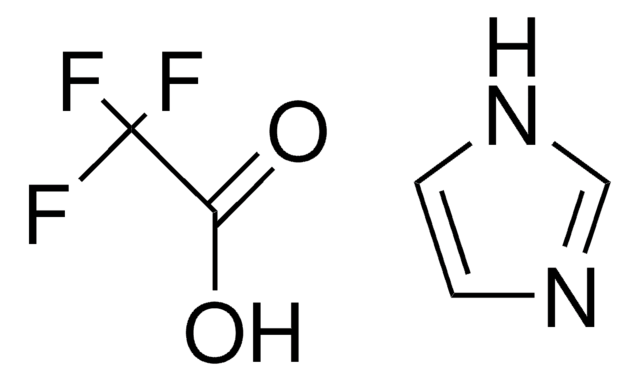QBD10760
t-Boc-N-amido-dPEG®8-acid
>95% (HPLC)
Synonym(s):
t-Boc-N-amido-PEG8-COOH, t-Boc-N-amido-PEG8-acid, t-Boc-PEG-acid, BocNH-PEG8-CH2CH2COOH
Sign Into View Organizational & Contract Pricing
All Photos(1)
About This Item
Empirical Formula (Hill Notation):
C24H47NO12
Molecular Weight:
541.63
MDL number:
UNSPSC Code:
12352106
NACRES:
NA.22
Recommended Products
Assay
>95% (HPLC)
form
solid or viscous liquid
reaction suitability
reaction type: Pegylations
polymer architecture
shape: linear
functionality: heterobifunctional
shipped in
ambient
storage temp.
−20°C
Features and Benefits
t-Boc-N-amido-dPEG8-acid is a monodisperse PEG product that is useful for peptide synthesis. The 28-atoms-long dPEG spacer allows the introduction of a short, hydrophilic spacer onto either end of a peptide chain or on an amino acid side chain. The flexible dPEG spacer conjugates to peptides using conventional peptide synthesis chemistry. The Boc protecting group removes easily with acids such as trifluoroacetic acid (TFA), HF, and trifluoromethane sulfonic acid (TFMSA). Peptide PEGylation imparts water solubility to hydrophobic peptide chains, expands the PEG-peptide conjugates′ hydrodynamic volumes (thus decreasing renal clearance), and protects PEGylated peptides from proteolysis. The combination of decreased renal clearance and protection from proteolysis contributes to longer in vivo circulation times for PEGylated (as compared to non-PEGylated) peptides. Additionally, PEGylation diminishes a peptide′s antigenicity. This product is part of the t-Boc-N-amido-dPEGn-acid (n=4, 8, 12, 24, 36) product series.
Legal Information
Products Protected under U.S. Patent #s 7,888,536 & 8,637,711 and European Patent #s 1,594,440 & 2,750,681
dPEG is a registered trademark of Quanta BioDesign
Storage Class Code
11 - Combustible Solids
WGK
WGK 3
Flash Point(F)
Not applicable
Flash Point(C)
Not applicable
Certificates of Analysis (COA)
Search for Certificates of Analysis (COA) by entering the products Lot/Batch Number. Lot and Batch Numbers can be found on a product’s label following the words ‘Lot’ or ‘Batch’.
Already Own This Product?
Find documentation for the products that you have recently purchased in the Document Library.
William A Day et al.
Laboratory investigation; a journal of technical methods and pathology, 97(1), 104-113 (2016-11-22)
Multiplexed analysis of multiple biomarkers in a tissue sample requires use of reporter dyes with specific spectral properties that enable discrimination of signals. Conventional chromogens with broad absorbance spectra, widely used in immunohistochemistry (IHC), offer limited utility for multiplexed detection.
Our team of scientists has experience in all areas of research including Life Science, Material Science, Chemical Synthesis, Chromatography, Analytical and many others.
Contact Technical Service








